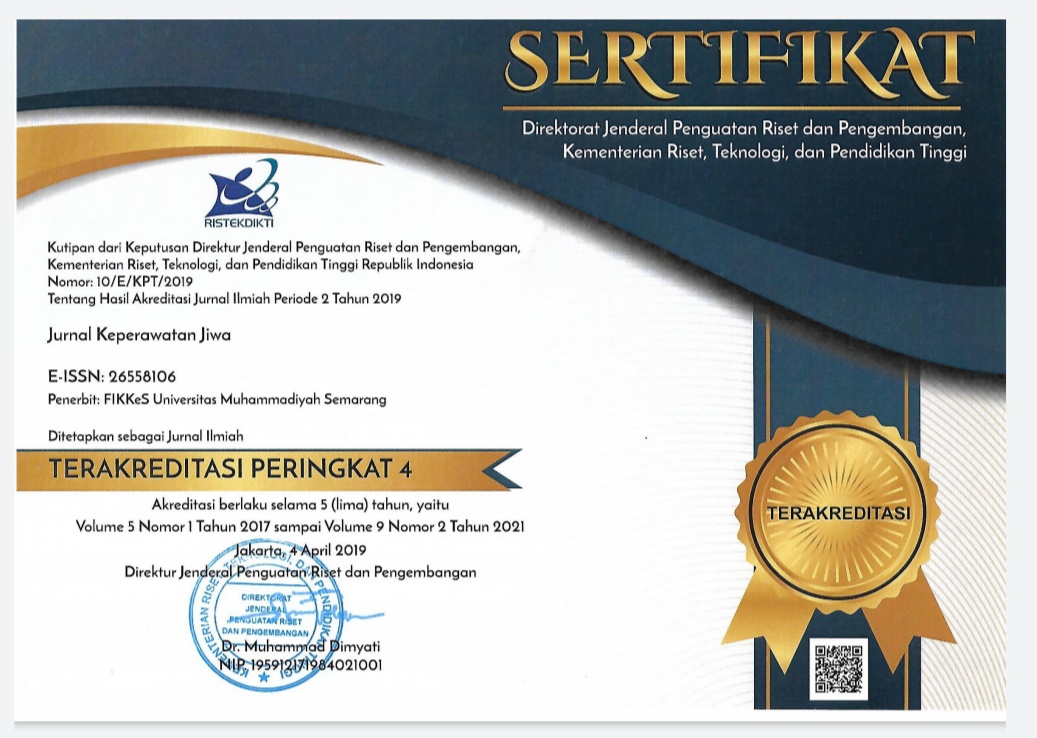Highly Sensitive Person dan Dampaknya terhadap Kesehatan Mental
(1) Universitas Lampung
(2) Universitas Lampung
(*) Corresponding Author
Abstract
Highly Sensitive Person atau HSP adalah sifat yang diasosiasikan dengan sensitivitas dan responsitivitas yang lebih tinggi terhadap stimulus dari internal maupun eksternal, lingkungan maupun sosial. Sifat ini dimiliki oleh 20% populasi manusia dan diturunkan secara gentik. Faktor yang berperan dalam terjadinya HSP diketahui adalah genetik dan lingkungan. Aktivitas otak pada HSP lebih tinggi daripada non-HSP hal ini akan menyebabkan overstimulasi pada otak sehingga pada HSP membutuhkan periode istirahat, dan overstimulasi ini seringkali diikuti oleh ketidakmampuan mengontrol emosi sehingga menyebabkan HSP lebih mudah mengalami gangguan kesehatan mental diantaranya adalah depresi, ansietas, dan stress. Tujuan dari artikel literature review ini adalah untuk mengenal tentang HSP, apa perbedaan HSP dengan non-HSP, bagaimana cara mengetahui individu dengan HSP, dan pengaruh HSP terhadap kesehatan mental. Metode yang digunakan dalam artikel ini adalah penelusuran artikel melalui database NCBI dan Google Scholar, lalu artikel dipilih dengan meninjau judul dan abstrak artikel. Tahun penerbitan sumber pustaka adalah dari tahun 2011 sampai 2019. Hasil dari berbagai artikel yang dicantumkan dalam artikel ini untuk menunjukkan adanya hubungan antara HSP dengan gangguan kesehatan mental seperti depresi, ansietas, dan stres.
Kata kunci : highly sensitive person, depresi, ansietas, stres
HIGHLY SENSITIVE PERSON AND ITS EFFECT ON MENTAL HEALTH
ABSTRACT
Highly Sensitive Person or HSP is a trait associated with higher sensitivity and responsiveness to internal and external stimuli, environmental and social. This trait found in 20% of human population and genetically inherited. Factors that play a role in the occurrence of HSP are known to be genetic and environmental. Brain activity in HSP is higher than non-HSP, this will cause overstimulation of the brain so the HSP requires resting period, and this overstimulation often followed by inability to control emotion that cause HSP more vulnerable to mental health problem such as depression, anxiety, and stress. The purpose of this literature review article is to get to know about HSP, the difference between HSP and non-HSP, how to know the individuals with HSP, and HSPs effects on mental health. The method used in this article uses a review of articles from NCBI and Google Scholar databases, then the article are selected by reviewing the article titles and abstracts. The year of publication of these articles are from 2011 to 2019. The results of various articles included in this article are to show the correlations between HSP and mental health disorders such as depression, anxiety, and stress.
Keywords : highly sensitive person, depression, anxiety, stress
Keywords
Full Text:
PDFReferences
Acevedo, B. P., Aron, E. N., Aron, A., Sangster, M., Collins, N., & Brown, L. L. (2014). The Highly Sensitive Brain : an fMRI Study of Sensory Processing Sensitivity and Response to Others ’ Emotions. Brain and Behavior: 1–15.
Aron, E. N. (2010). Psychotherapy and The Highly Sensitive Person : Improving Outcomes for That Minority of People Who Are The Majority of Clients. New York: Routledge, Taylor & Francis Group.
Brindle, K., Moulding, R., Bakker, K., & Nedeljkovic, M. (2015). Is the relationship between sensory-processing sensitivity and negative affect mediated by emotional regulation ?. Australian Journal of Psychology: 1–8.
Chen, C., Chen, C., Moyzis, R., Stern, H., He, Q., Li, H., … Dong, Q. (2011). Contributions of Dopamine-Related Genes and Environmental Factors to Highly Sensitive Personality : A Multi-Step Neuronal System-Level Approach. PLoS ONE, 6(7): 1–9.
Cooper, T. (2015). Thrive: The Highly Sensitive Person and Career. Ozark: Invictus Publishing, LLC.
Dal, S. (2015). Relationship between sensory processing sensitivity and hypochondriacal features and the moderating role of somatic symptoms. Biomedical and Health Sciences Research 6: 351–359.
Gearhart, C. C. (2018). Highly Sensitive Person Scale (HSPS). John Wiley & Sons, Inc : 299–305.
Greven, C. U., Lionetti, F., Booth, C., Aron, E. N., Fox, E., Schendan, H. E., … Homberg, J. (2018). Sensory Processing Sensitivity in the Context of Environmental Sensitivity : A Critical Review and Development of Research Agenda. Preprint: 1–74.
Grimen, H. L., & Diseth, A. (2016). Sensory Processing Sensitivity : Factors of the Highly Sensitive Person Scale and Their relationships to Personality and Subjective Health Complaints. Comprehensive Psychology 5: 1–10.
Jagiellowicz, J., Aron, A., Aron, E. N., Brook, S., Yu, K., Varfolomeyeva, A., & Brook, S. (2016). Relationship Between The Temperaments Trait of Sensory Processing Sensitivity and Emotional. Social Behavior and Personality, 44(2), 185–199.
Jonsson, K., Grim, K., & Kjellgren, A. (2014). Do Highly Sensitive Persons Experience More Nonordinary States of Consciousness During Sensory Isolation?. Social Behavior and Personality, 42(9): 1495–1506.
Licht, C. L., Mortensen, E. L., & Knudsen, G. M. (2011). Association between Sensory Processing Sensitivity and the 5-HTTLPR Short / Short Genotype. Cimbi, 2011.
Meindl, S. (2019). Highly Sensitive People and Depression: Overstimulation May Lead to Depression. Dalam http://highlysensitive.org/highly-sensitive-people-and-depression-overstimulation-may-lead-to-depression/. Diakses 14 November 2019.
O’Rourke, C., & Walsh, E. (2012). The Highly Sensitive Person : Introductory Guide. Plum Turtle Coaching: 1–11.
Rizzo-sierra, C. V. (2012). The Human Sensory Processing Sensitivity: Biological Implications for Introversion, Submission and Creativity. Yoga University.
Rothenbucher, F. U. (2017). Sensory Processing Sensitivity and Attentional Bias – A Pilot Study. Vrije Universiteit Brussel.
Yano, K., Kase, T., & Oishi, K. (2019). The effects of sensory-processing sensitivity and sense of coherence on depressive symptoms in university students. Health Psychology Open: 1–5.
Article Metrics
Abstract view : 4280 timesPDF - 328 times
DOI: https://doi.org/10.26714/jkj.7.3.2019.317-322
Refbacks
- There are currently no refbacks.
PPNI Univ. Muhammadiyah Semarang
Jl. Kedungmundu Raya No. 18 Semarang Gedung NRC University of Muhammadiyah Semarang
Phone: 02476740287
Fax: 02476740287
Email: [email protected]
This work is licensed under a Creative Commons Attribution 4.0 International License.


